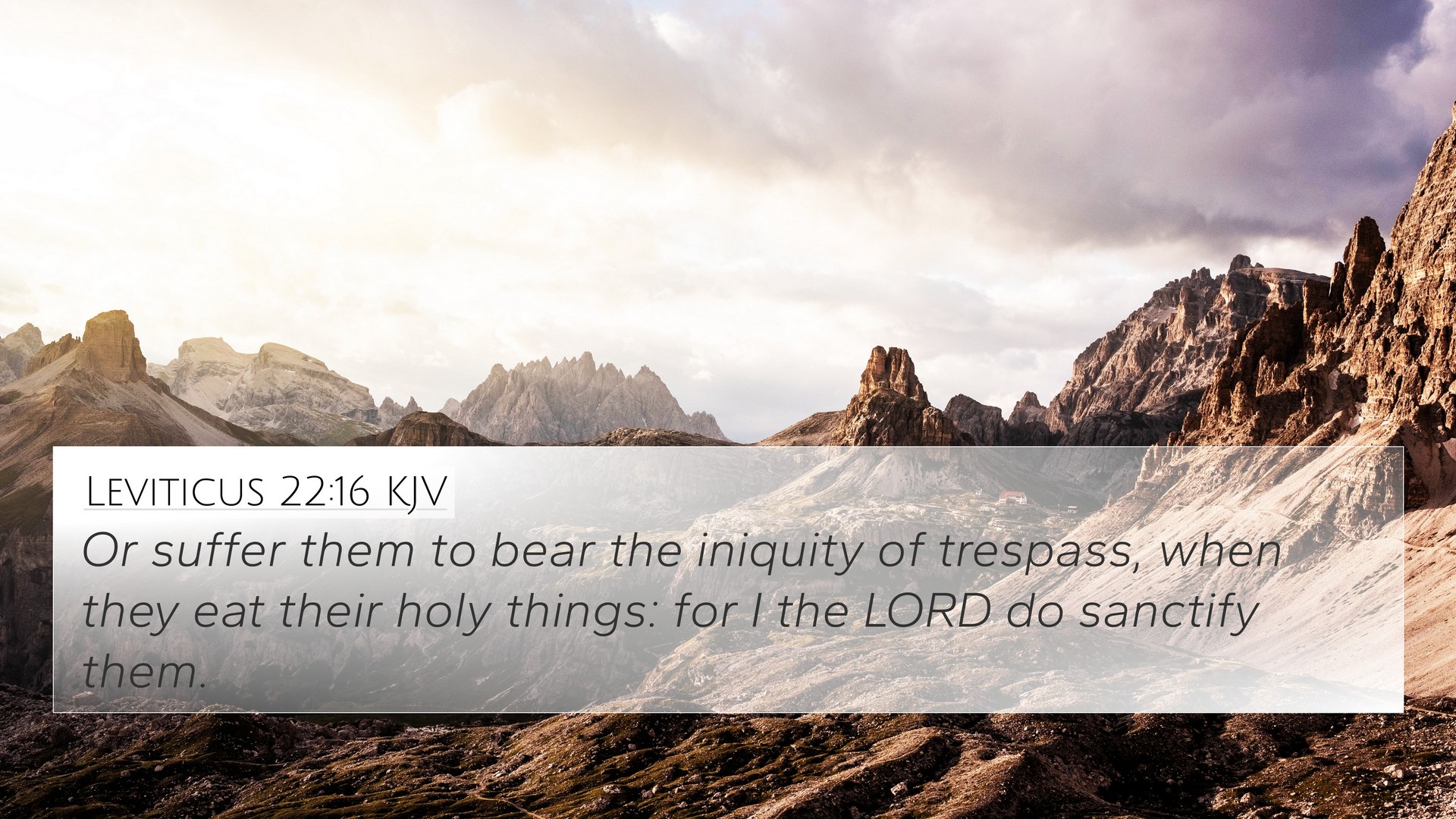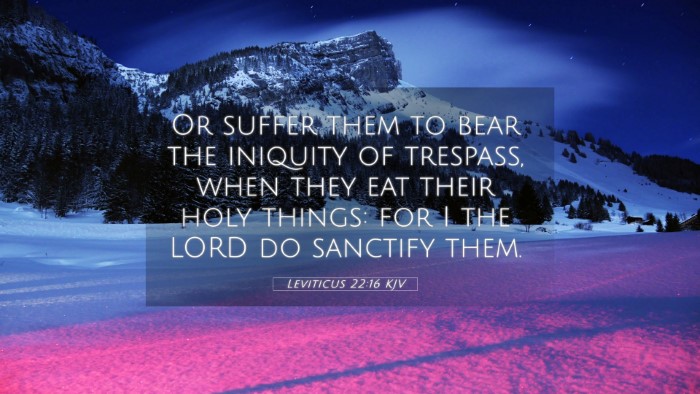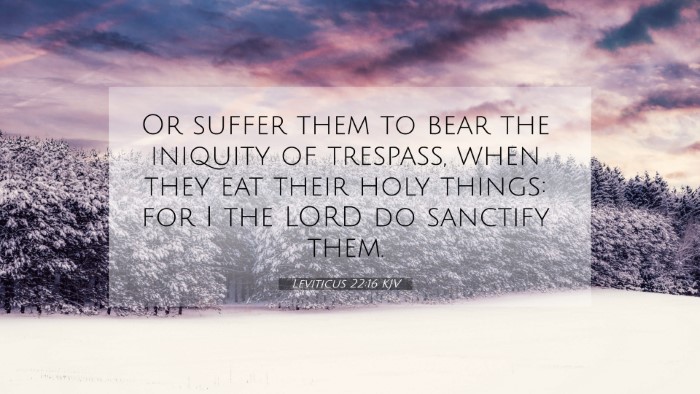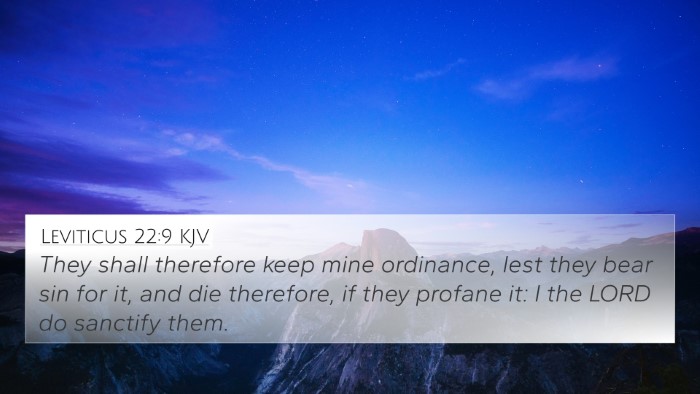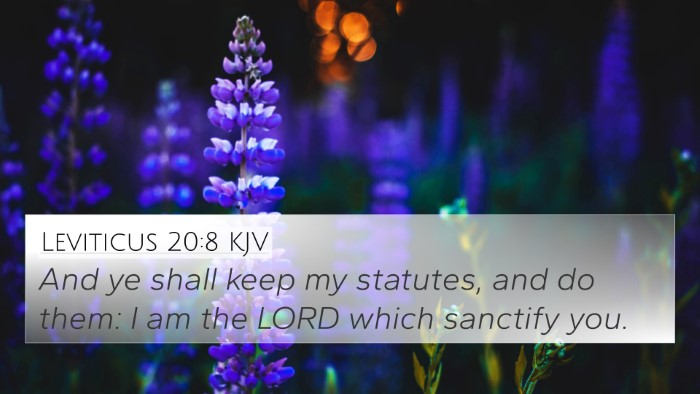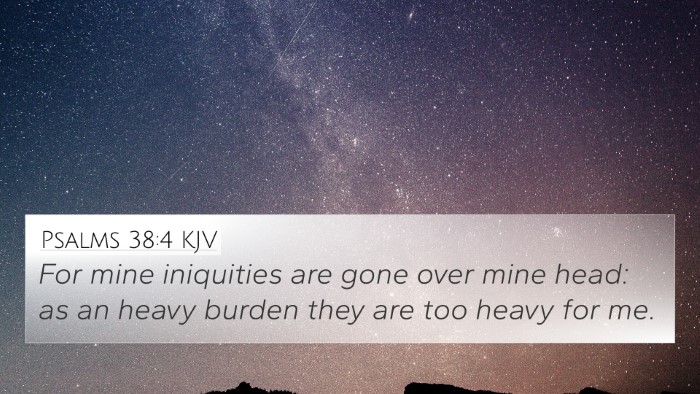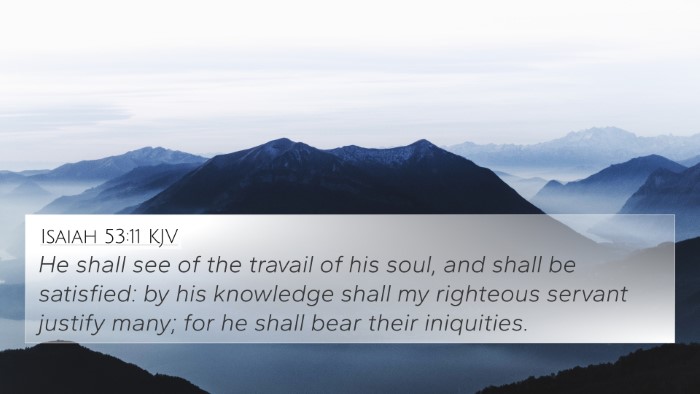Understanding Leviticus 22:16
Leviticus 22:16 states: "And let them not profane the holy things of the children of Israel, which they offer unto the LORD." This verse emphasizes the sacredness of offerings presented to God, highlighting the importance of maintaining purity and reverence in worship.
Context and Significance
The context of Leviticus surrounds the laws governing the rituals and practices of the Israelite community, particularly in the conduct of priests and their duties. This specific verse addresses the consequences of treating sacred offerings with disrespect, which could lead to serious repercussions not only for the priests but for the entire community.
Insights from Public Domain Commentaries
-
Matthew Henry:
Henry remarks on the sanctity of the offerings made by the Israelites, noting that they were intended to express gratitude and devotion to God. He emphasizes that any contempt or disregard for these offerings is a serious offense, as it undermines the covenantal relationship between God and His people.
-
Albert Barnes:
Barnes highlights the implications of profaning the offerings, explaining that such acts could deter the blessings of God from the community. He connects this verse to the broader theme of holiness in worship, which is crucial in maintaining a clean relationship with God.
-
Adam Clarke:
Clarke explores the notion of holiness further, explaining that the act of sacrifice is meant to be approached with reverence and sincerity. He discusses the spiritual significance behind the offerings and warns against the casual or irreverent treatment of what is deemed holy.
Cross-References for Deeper Understanding
- Exodus 30:10 - Discusses the atonement money and its sacred nature.
- Leviticus 10:3 - Mentions the holiness of God and the consequences of irreverence.
- Deuteronomy 12:32 - Instructs on the observance of God's commands regarding offerings.
- Malachi 1:7 - Addresses the dishonor shown to God through improper offerings.
- Hebrews 12:28 - Encourages believers to serve God acceptably with reverence and awe.
- 1 Peter 1:16 - Calls believers to be holy as God is holy, which includes respect for sacred things.
- Matthew 5:23-24 - Advises proper conduct before making offerings to God.
Thematic Connections
Leviticus 22:16 can be seen as part of a larger narrative concerning the relationship between God and His people. It emphasizes:
- The need for holiness in worship.
- The impact of individual actions on communal relations.
- The importance of adhering to God's commandments regarding offerings.
Practical Applications
Understanding the meaning of Leviticus 22:16 today involves recognizing the importance of treating spiritual duties with seriousness and respect. Believers are called to reflect on their personal conduct in worship, ensuring that it aligns with God's expectations. Additionally, this verse serves as a reminder of the communal aspects of faith, where each individual's actions can affect the collective relationship with God.
Conclusion
In conclusion, Leviticus 22:16 emphasizes the sanctity of offerings and the necessity for reverence in worship. The insights from various biblical commentaries highlight the serious implications of profaning what is holy and encourage believers to engage in their faith with sincerity and respect. This understanding enriches our study of the Scriptures and enhances our approach to worship in the present day.
Further Study Suggestions
To deepen your understanding of this verse and its implications, consider the following:
- Engage in comparative Bible verse analysis to see how Leviticus 22:16 connects with verses from both the Old and New Testaments.
- Utilize tools for Bible cross-referencing to identify themes and connections between various Scriptures.
- Explore inter-Biblical dialogue by examining how priests’ functions in Leviticus parallel the New Testament’s teachings about Christ as our high priest.
